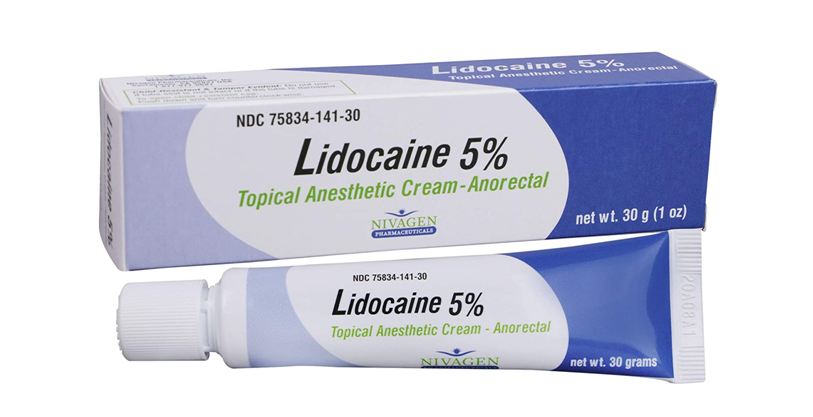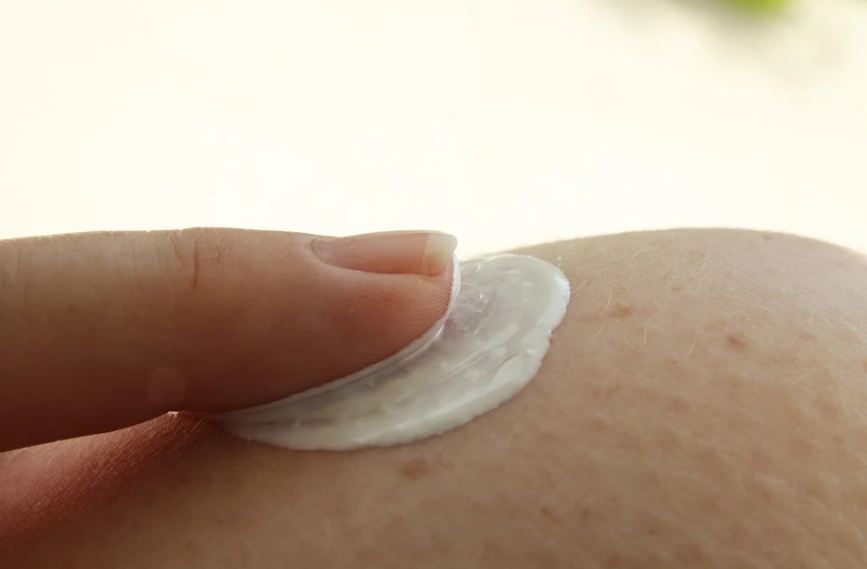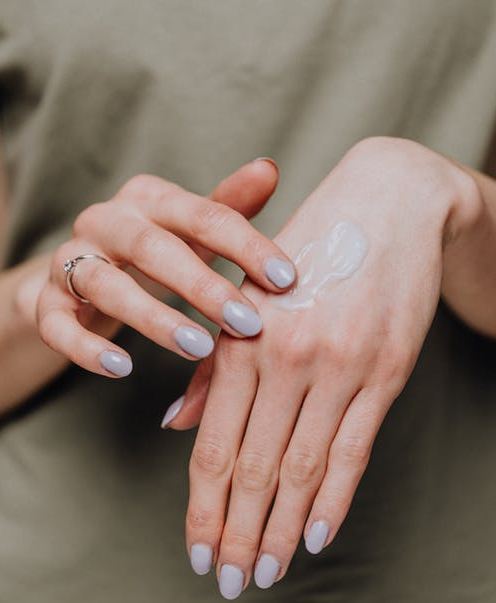Lidocaine is an anesthetic belonging to a group of anesthetics called a local anesthetic. It aids in easing nerve pain and causes numbness in the skin in case of specific skin conditions. It works by causing loss of feeling from the infected part to relieve pain. Moreover, it hinders nerves from sending signals of pain to the brain. Different skin situations in which lidocaine must be used are skin burn, scrapes, insect bites, etc.
Types of Lidocaine
Different forms of lidocaine available are:
- Lidocaine cream
- Lidocaine ointment
- Lidocaine spray
- Topical lotion
- Topical liquid
- Topical solution
Uses
Lidocaine is an excellent nerve pain reducer and the number 1 OTC numbing cream. It numbs the part of the skin where it is applied to reduce the pain of infection. It temporarily stops itching from some particular skin situations. For example, minor burns, eczema, etc. It can also treat rectal itching caused by hemorrhoids. In addition, lidocaine also reduces nerve pain during some medical procedures (cystoscopy). It lessens post-herpetic neuralgia, which is a type of nerve pain caused by shingles.
Following are some situations when lidocaine can be used:
- Treat sores in the mouth
- Numb the gums
- Ease pain
- Sunburn
- Poison ivy
- Poison oak
- Insect bite
Precautions before Using Lidocaine
- Allergies
Before applying lidocaine, tell your doctor/pharmacist if you are sensitive to it or any other local anesthetic because it may contain inactive components, which can cause severe allergic problems. If you have used lidocaine in the mouth or throat, avoid eating anything for at least one hour because you may choke your tongue if the area where you applied it is still numb.
- MedicalHistory
Also, tell your doctor about your medical history if he is prescribing you lidocaine. Tell him whether you have any heart diseases, liver diseases, or any breathing problems.
- MRI Test
In case you are going to have an MRI test, tell the dispenser you are using this medicine because some lidocaine manufacturing companies use metal in manufacturing, which can cause burn during MRI. That’s why it is suggested not to use it before MRI testing.
- Surgery
If you are having surgery, tell your doctor about this medicine before the operation. This is because lidocaine may interact with any other medicine used in the surgery, and the side effects may be very severe.
- Pregnant Ladies
For pregnant ladies, lidocaine is recommended when it is highly needed. However, before using it, discuss with your doctor the risks and benefits of this medicine.
How to Use It?
First of all, while using this medicine, follow the directions of your doctor. Apply it at regular intervals. If your doctor has not prescribed it, follow the instructions given on the packet.
Before applying on the infected part, clean and dry that part carefully, and use it 2-3 times as prescribed by the doctor. If you are using a spray instead of ointment, then shake the canister well before use, and keep it 3-5 inches away from the infected part. And if the infection is on the skin, then first spray it on your hand and then apply it on your face. Make sure it doesn’t go into the eyes, nose, or ears.
Do not take the infected part near heat after applying it because it may worsen your infection’s condition. After applying the cream, cover it with a waterproof bandage to keep it in place.
If you are going to a makeup salon, tell the makeup artist where you have applied the numbing cream, so he/she doesn’t apply any harsh makeup product there.
Wash your hands as soon as possible unless the infection is on your hand. If by any chance it goes into your eyes or in any other sensitive part, wash that part immediately with water and seek medical assistance if you feel unusual.
What If You Forget a Dose?
In case you are using lidocaine regularly. And you forget a dose. Take it immediately as you remember. And if it is the time for your next dose, then just omit the missed dose. Never take a double dose.
Overdosage
If you have taken an overdose of lidocaine, then seek medical treatment as soon as possible without wasting a second because it can have fatal side effects. If you inhale or swallow it by any chance and experience shortness of breath, call 911 or the poison control center. The symptoms of overdosage of this product are:
- Shortness of breath
- Irregular heartbeat
- Respiratory failure
- Coma
Side Effects
Few side effects that may occur after applying lidocaine are redness and swelling. If these side effects appear, but your doctor has prescribed it, then don’t worry because he already knows that it may show some side effects.
A very few people show severe allergic reactions to it. Some severe side effects of using this product are:
- Swelling of face or tongue
- Irritation/itching at the part where it is applied. If irritation becomes unbearable, take the cream off immediately.
- Breathing issues
- Purple acne on the skin
- Low blood pressure
- Difficulty in vision
- Severe headache
- Feels like ringing in the ears
- Rapid dizziness
- High temperature
- Restlessness
- Chills
- Uneven heartbeat
- Vomiting
- Tremor
- Seizure
If you have any of the above side effects, consult with your doctor as soon as possible because these symptoms may get worse. However, the above-given side effects are not the only side effects that you may experience.
Interactions
If your doctor has prescribed you this medicine, then show him the list of medicines, including any type of herbs or non-prescribed medicines you are taking. Even tell your doctor if you are consuming alcohol or taking illegal drugs because drug interactions may have fatal effects. Never alter the dosage of lidocaine without the doctor’s permission.
Following are interactions of lidocaine:
- Lomitapide
- Epinephrine
- Prilocaine
- Bosutinib
- Fentanyl
- Bupivacaine liposome
- Axitinib
- Vitamin D3
- Miralax (polyethylene glycol 3550)
- Fluvoxamine
- Ivacaftor
- Mefloquine
- Olaparib
- Pimozide
- Naloxegol
Lidocaine can have interactions with almost 62 medicines. This information does not comprise of all the medicines which have interactions with lidocaine. Therefore, it is highly recommended to share the list of your medicines with the doctor before using this product.
Storage and Precautions
- Keep it away from the reach of children or pets, and store it at room temperature 25o
- Do not keep it in the refrigerator or in extreme sunlight.
- Immediately throw it away after the expiration date.
- Do not flush it down through the toilet – discard it properly. You can ask your pharmacist how to dispose of it.
- If you are using lidocaine spray or foam, keep the canister away from high heat. Do not store or use them near open flame because the canister may burst.
Conclusion
Undoubtedly, lidocaine is an excellent OTC numbing cream and the number one nerve pain reducer. However, make sure to always take the precautions mentioned above before using it. Moreover, don’t forget to follow your doctor’s direction, or you might have to face severe circumstances.



